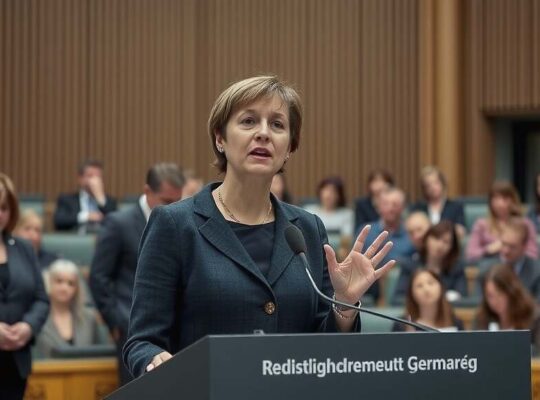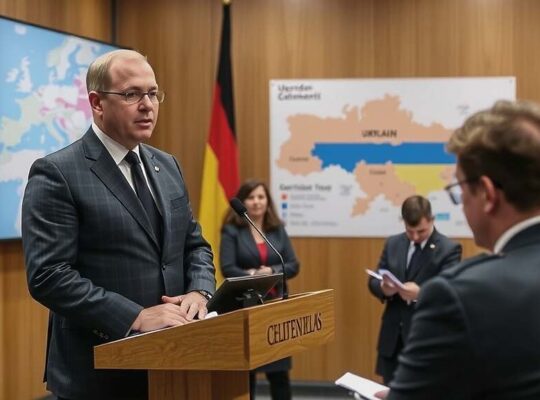A growing disconnect between policymakers and the youth population is escalating as debates surrounding the revised German military service obligations intensify. Quentin Gärtner, General Secretary of the Federal Conference of Students (Bundesschülerkonferenz), has sharply criticized the current government approach, accusing officials of prioritizing internal coalition squabbles over genuine engagement with those most affected by the proposed changes.
Speaking to the Redaktionsnetzwerk Deutschland, Gärtner questioned the government’s willingness to meaningfully address the concerns of young people, stating that the ongoing uncertainty is actively undermining any potential for acceptance and fostering a sense of alienation. He argued that the shifting policy landscape, particularly the abrupt cancellation of a joint press conference following Defense Minister Boris Pistorius’s dissent from a previously negotiated draft involving a lottery system, is exacerbating an already precarious situation.
The situation highlights a deeper concern: the mental health crisis among children and adolescents. Gärtner warned that the instability fueled by the government’s reactive and often contradictory messaging risks compounding existing vulnerabilities. “You don’t gamble with young people” he asserted, underscoring the responsibility of leadership to provide answers and clarity rather than contributing to a climate of anxiety and confusion.
Defense Minister Pistorius’s rejection of the coalition agreement and the subsequent abrupt communication shutdown, exemplifies the current fractured political landscape. While coalition maneuvering is inherent in parliamentary governance, critics argue the ramifications of prioritizing political expediency over transparent and considerate policy-making are disproportionately felt by vulnerable populations. This latest development further underscores a critical need for genuine dialogue and a reassessment of how the government communicates with and legislates for, the younger generation. The lack of consistent answers and the sense of being unheard are breeding resentment and fueling a growing distrust in established institutions.












